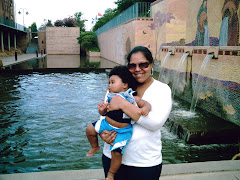After reading through the materials this week I came to the conclusion that as information consumers, we suffer from blind trust and laziness. We are not as critical of information on the internet as we are about information from other sources (i.e. television, radio, etc..). I believe this is attributed to our belief that television and radio are controlled by dominant gatekeeprs. I think many people see the internet as an information source where consumers are in control.
Of course one of the problems with the internet is that we can’t take any website at face value. Out of all of the things I reviewed, I found the content on the martinlutherking.org website the most disturbing. Having a young son who will be starting school in a few years, I found the contents of this site cleverly misleading. One of my colleagues mentioned during class discussion that we tend to trust any website with a .org address. I tend to agree with this. The professional appearance of the site, the ambiguous links and titles found on the site, and the .org address together, created a false image of creditability. It wasn’t until I started to read the contents of the site that I discovered the true intention.
I don’t believe that we are all as critical as we think we are. While there tends to be a natural distrust of television news, the same cynicism doesn’t always apply to the internet. Since there is no proper policing of the web, it’s possible for groups like stormfront.org to create sites to lure in children and other surfers who may be easily influenced. This is very dangerous to me and one of the reasons why I found the content on the “Teaching Legal Professionals How To Do Research" web page so incredibly helpful. I will definitely be using the information I found on this website as a guide to analyze all of the information I uncover while conducting research.

